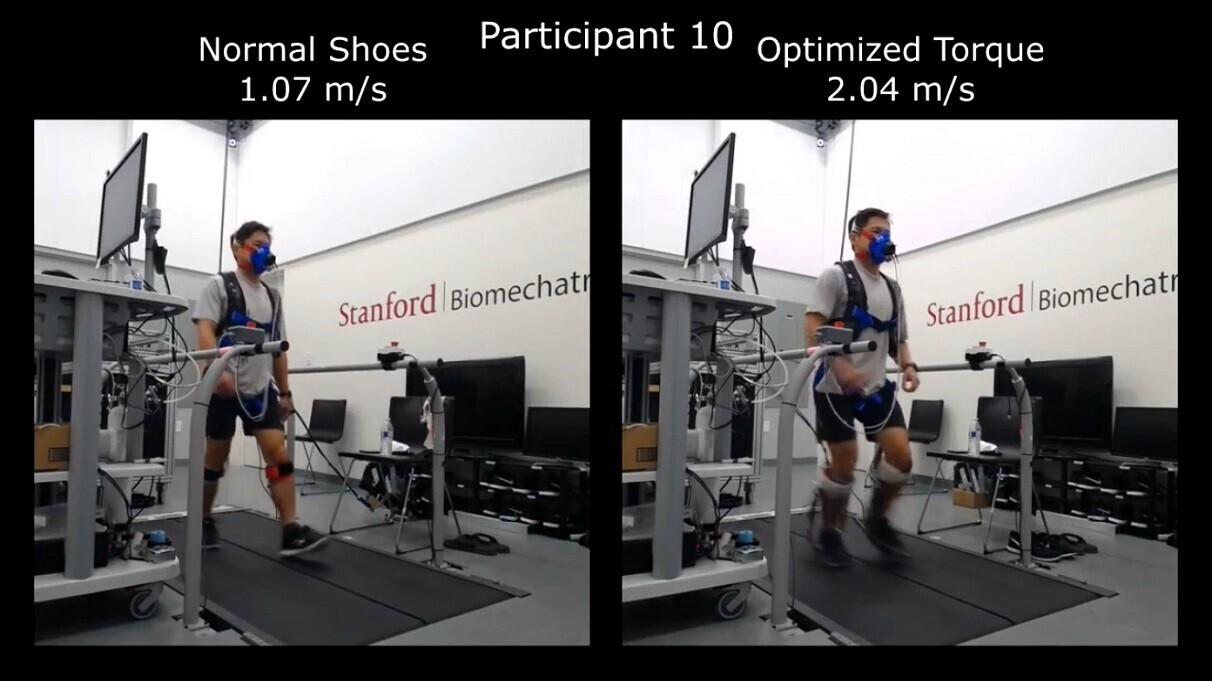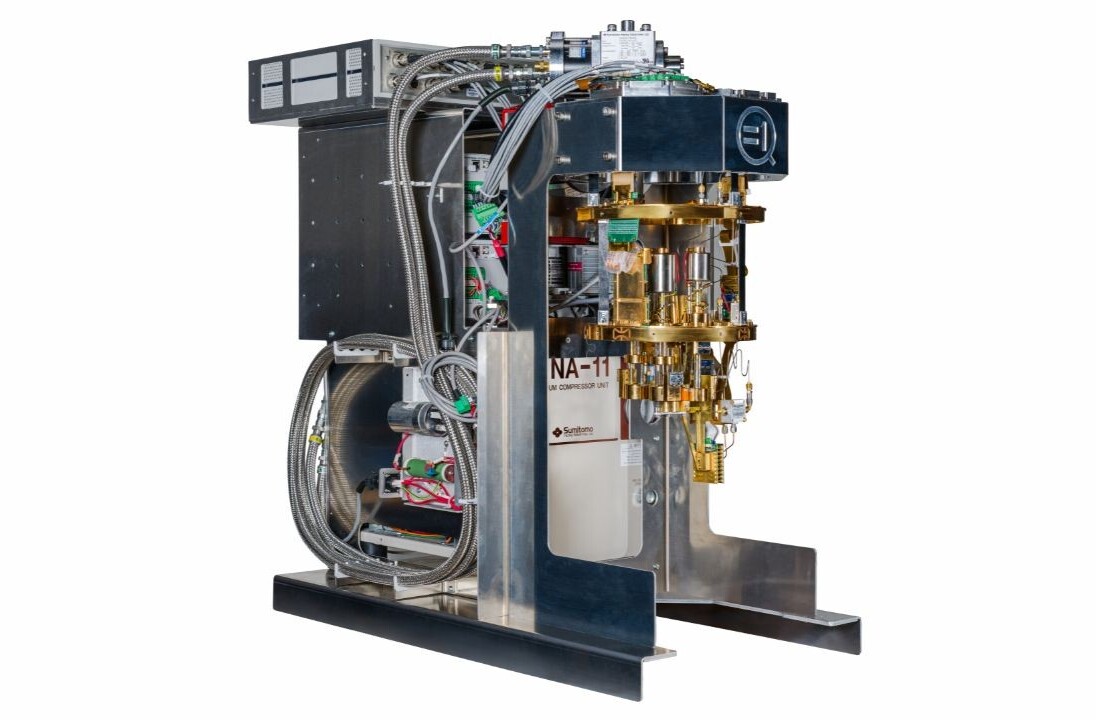
A team of scientists and engineers at Stanford University recently developed an AI-augmented walking gadget that could help us all pick up the pace while burning less energy.
Behold the Stanford ankle exoskeleton:
Up front: While the device itself is a complex mash-up of AI and mobility technologies, the idea behind it is pretty simple. It connects to a user’s ankles and supports movement using a pulley system that lifts the wearer’s heel up when they step, thus reducing the energy and force necessary to point their toe down as they begin the next step.
Per the researchers’ paper:
In this study, we used human-in-the-loop optimization to test whether large improvements in self-selected walking speed are possible through ankle exoskeleton assistance.
Healthy participants (N = 10) were instructed to walk at a comfortable speed on a self-paced treadmill while wearing tethered ankle exoskeletons.
An algorithm sequentially applied different patterns of exoskeleton torque and estimated the speed-optimal pattern, which was then evaluated in separate trials. With torque optimized for speed, participants walked 42% faster than in normal shoes.
A 42% increase in walking speed is a remarkable improvement. The researchers expected some improvement based on the mechanics of the device alone, but the addition of self-learning algorithms and the use of a human-in-the-loop during training seems to have propelled its efficacy far beyond just a minor performance bump.
Quick take: The big idea here is to eventually develop mobility solutions for the elderly and/or disabled. The current system is an early prototype for future research. Not only does it take hours to calibrate, but it’s only been tested on young, healthy adults so far.
Nevertheless, this is an important step in the right direction for humanity as a whole. If the idea is to optimize our ability to traverse our world, any solution that allows us to reduce our energy consumption while overcoming nominal physical limitations should be considered worthwhile.
Read the whole paper here.
Get the TNW newsletter
Get the most important tech news in your inbox each week.




